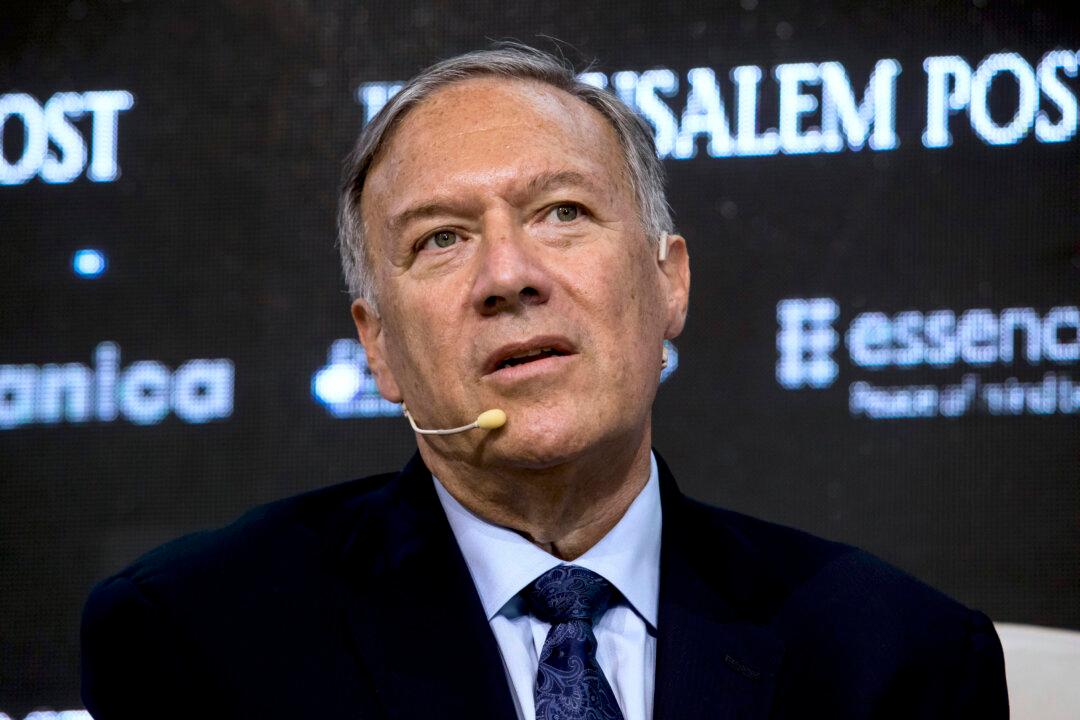The next U.S. national security strategy should focus on the challenges of curbing authoritarianism and formally recognize the sovereignty of Taiwan to deter Chinese communist aggression, according to former Secretary of State Mike Pompeo.
“Being in an ambiguous place is really, really dangerous,” Pompeo said during a March 28 interview with the Hudson Institute, a D.C.-based think tank.




